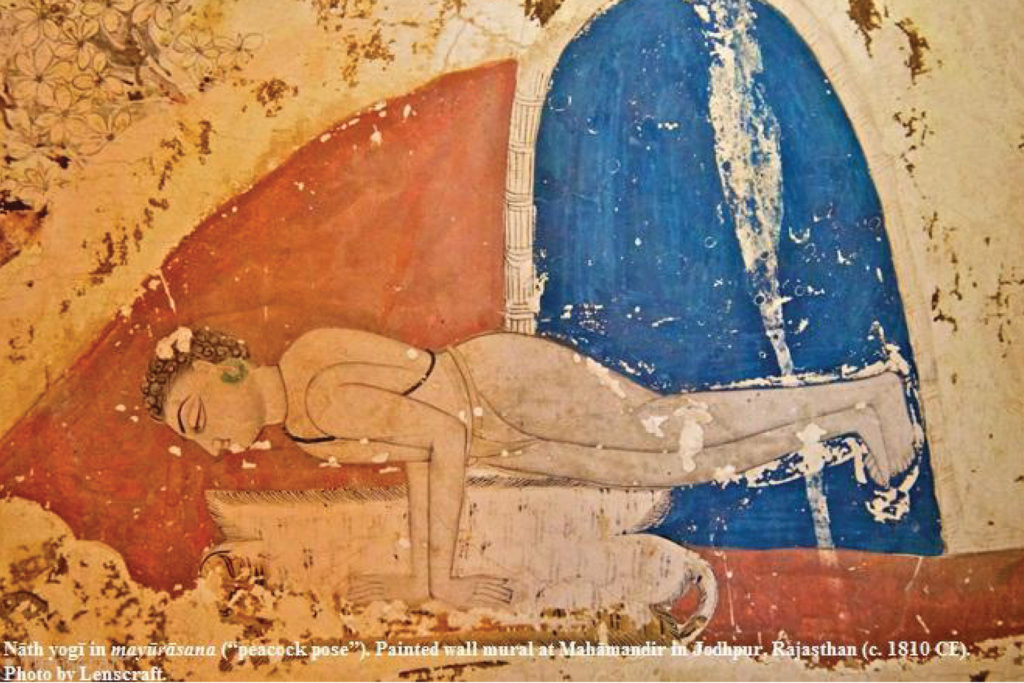What is Yoga?
Charissa Farley-Hay
Yoga—the unique technique of keeping good health—was originated and evolved in India over 5,000-6,000 years ago from a potentially matriarchal civilization called the Harrapa, into the times of Veda, Jainism, Buddhism, and others. Yoga is an ancient practice to unite Atman (loosely translated as your soul) with the supreme consciousness or to realize our true self through systematic, logical and universal embodied methodology.

Sage Patanjali in the mid-2nd century BCE may have given the world the Sanskrit language (to eliminate impurities of speech), Ayurveda (to eliminate ailments of the body), and a one page document – the Yoga Sutras – to eliminate impurities of the mind.
Even before Sage Patanjali there are references to Sage Kapila who may have lived in the 6th or 7th century BCE. His teachings (“that what has been in existence forever”) may have been the origins of Samkhya and Yoga philosophy – the study to better oneself physically, mentally and spiritually, may have evolved from that.
These ancient studies, however, were not based on asanas (poses or postural yoga). The four paths of yoga had a specific purpose, again, to unite our true self as one with the divine. (“Thou are That” – you are divine.) It may have always been debated as to which is more important, in what order or for whom – Bhakti Yoga (devotion), Jnana Yoga (knowledge), Raja Yoga (mediation), and Karma (action and selfless service).
The earliest visual records of yoga however, are recognized as yoga by asanas (poses)! Clearly mastery of our body, mind, breath, and subtle energies has always been an element in this connection to our true selves. It has been said that the physical practice was required to sit properly for long durations required for meditation. (The history of the energies and postures is for another discussion!) Through the innovation of modern Indian gurus new forms of postural yoga were developed aiming for accessibility and inclusivity, by emphasizing the practice of yoga technique over metaphysical theory or philosophical doctrine.
So what about posture competitions? Is a terra-cotta figure of a yogi in Triangle Pose, circa 600 B.C., tell us how far apart the feet should be? Are these ancient visual records of beautiful postures examples of what was demonstrated? Even if for most of us it’s “yoga practice not yoga perfect” does this mean we can’t celebrate those who inspire us with their dedication and devotion to this form of yoga and are able to obtain rare and beautiful physical mastery of their body? I am sure that in the endless hours of a competitor’s practice, they were not thinking of competition with others but rather mastery of themselves. I am aware that some may not honor the “measure” of one’s expression as better or worse than another’s. Is it possible that our own perception is what creates this reality of unity or division? What are your thoughts?
I have studied Vedanta over the last year, and one of my favorite lectures is a course on Discovery and Management of Self by Pravrajika Divyanandaprana on Perception (link below). I am humbled to continue the age-old tradition of exchanging thoughts on this topic and honor the expression of all the beautiful yogis I have the good fortune to know.
This could be this year’s vacation without leaving home: Autobiography of a Sadhu: A Journey into Mystic India: Rampuri
Sources:
https://www.youtube.com/watch?v=G-UHUsJB3Og
https://www.youtube.com/watch?v=ois6Q5uu708&list=PLqxTjIPGtimW_6ap6RxK95CfLSxn2p0TJ&index=16
https://cswr.hds.harvard.edu/news/2015/10/14/contesting-yoga%E2%80%99s-past-brief-history-%C4%81sana-pre-modern-india
https://www.youtube.com/watch?v=IeFV701eh70
https://www.youtube.com/watch?v=PBZNVd4KHmA&t=29s
https://en.wikipedia.org/wiki/Patanjali
https://www.himalayanacademy.com
https://arshabodha.org


